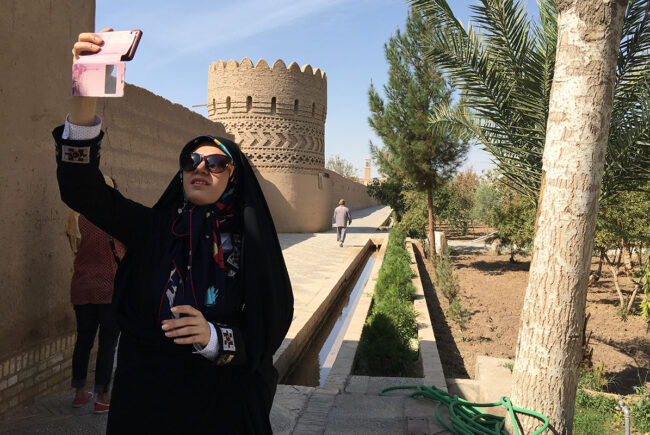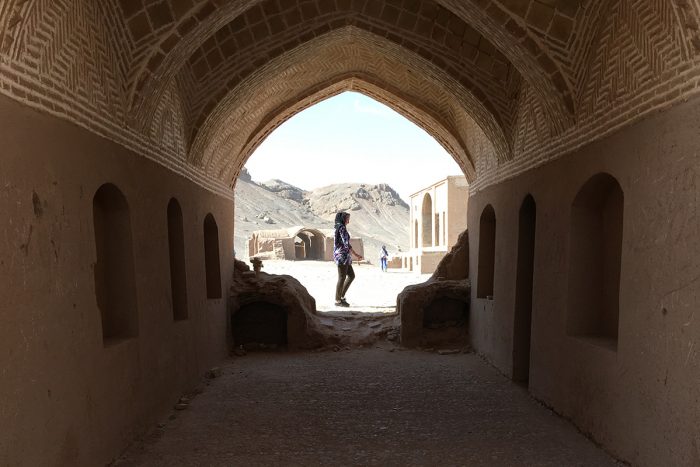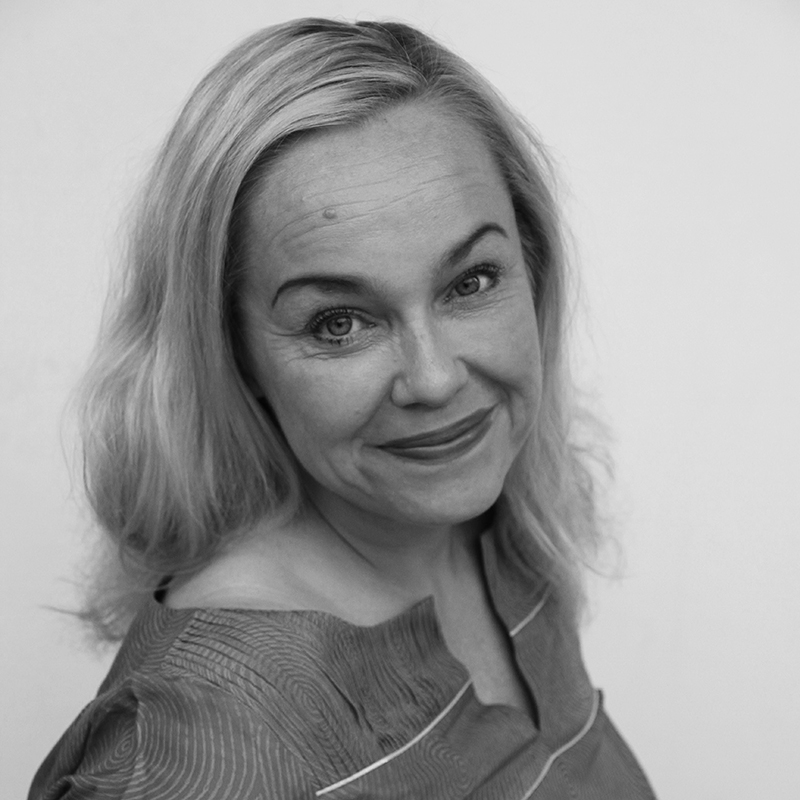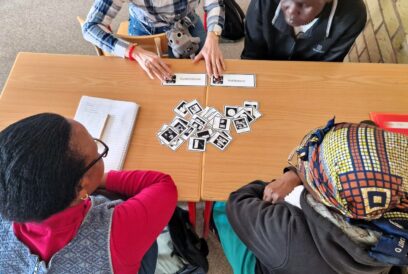

Today, majority of university students in the Emirates are women because they have been encouraged to study for degrees. As a result adult education courses in the Emirates are dominated by male participants. /Photo: Pia Heikkilä
The Gulf countries’ diversity can help to create an environment of learning
Published:Today, majority of university students in the Emirates are women because they have been encouraged to study for degrees. As a result adult education courses in the Emirates are dominated by male participants. /Photo: Pia Heikkilä
The Gulf region’s strength is in its diversity. Adult education can help to deepen the understanding of different cultures but much needs to be done as lifelong learning in the region lacks structural and systematic approach.
Vast oil reserves, sand dunes, year round sunshine and calls for prayer may be the impressions that first come to mind with the Gulf countries of Bahrain, Qatar, the United Arab Emirates, Oman, Kuwait and Saudi Arabia.
But there is more to the six Gulf Cooperation Council (GCC) member countries than meets the eye. The region has for centuries been an important international trade route connecting the Middle East to Africa, China and India, and as a result of the constant influx of people, it has developed its distinct cultural identity based on diversity.
Today the majority of the GCC’s countries’ population is from elsewhere, with Qatar and the Emirates having nearly 90 per cent of its total population from abroad.
These countries’ original population consisted of small tribal or pearl fisher communities, which changed with the arrival of other settlers. First the Iranians, Pakistanis, Indians and later, along with the oil industry and economic boom came Westerners.
The diversity grew over the years as did the wealth of these nations. They began modernizing fast.
One of the key areas to change was the countries’ education system. As a result of the efforts, today, the region’s countries boast high literacy and levels of education.
Education boosts diversity
Oil-rich Kuwait is a tiny country nestling at the top of the Persian Gulf with powerful neighbours Iraq, Iran and Saudi Arabia. Its massive oil reserves make it one of the world’s richest countries per capita.
It is a country that has invested heavily on well-being of its citizens. It helps Kuwaitis to find jobs, gives free health care to its citizens and families get generous allowances on food, childcare and education.
Kuwaitis themselves can apply for a scholarship from the government to study their degree in the US or Canada.
Many of the regular students are employees who seek to develop skills or get certificates in specific training related to their jobs.
Kuwaitis have several options available when it comes to adult education too; from private colleges to government-sponsored courses and even the offshoots of foreign Universities are offering evening courses.
Despite all the state support, adult education for Kuwaitis is a crucial way to enhance their skills.
“It’s important because many of our regular students are employees who seek to develop skills or get certificates in specific training related to their jobs,” says Professor Abdullah Alajmi from The Arab Open University based out of Kuwait City.
The most favoured courses are English language and business and management basics such as accounting and HR certificate courses.
“Besides these courses or modules, our most popular evening courses are Kuwait history, Islamic culture and civilizations, development issues, and globalization course.”
Nearly 70 per cent of people who live in Kuwait are not Kuwaitis. Diversity can enrich the students’ learning experience and mixing students from different background can even help them to learn better.
“I personally teach Kuwaitis and expatriates in my courses working in groups as a requirement for success and gaining academic knowledge. Many of my students find this useful experience of learning,” says Professor Alajmi.
Coming to a course to study can be more than just a place for learning.
“Education is not about information but how you use it to open your mind to new things. Our role as educators is to promote tolerance and enhance the feeling of being part of a civilized society that supports the open mindedness,” says Assistant Professor in Educational Neuroscience Efthymios Papatzikis at the Canadian University in Dubai.
Women at the forefront of education
The Western view often questions Islamic societies’ treatment of women and their role in decision making.
South from Kuwait, next to Saudi Arabia lies The United Arab Emirates (UAE), which consists of federation of seven states that has grown from a fishing community to the region’s economic powerhouse with the most liberal outlook.
The Emirates have made great strides when it comes to improving women’s position and visibility in the Arab world.
Most adult education seekers are male, who have for instance taken a career in the military but have dropped out and want to consider another opportunity.
“The UAE has made big efforts in recent years in making women matter in the society. Women have been appointed as CEOs, governmental and other leadership posts,” says Dr Natasha Ridge, the Executive Director of Sheikh Saud bin Saqr Al Qasimi Foundation for Policy Research.
Today, majority of university students in the Emirates are women because they have been encouraged to study for degrees. As a result adult education courses in the Emirates are dominated by male participants.
“Most adult education seekers are male, who have for instance taken a career in the military but have dropped out and want to consider another opportunity,” says Dr Ridge.
However, in recent years there has been a shift in adult education too, where more women are now coming forward, requesting evening courses and workshops.
Adult education can contribute towards more equal society, says Dr Ridge.
“Gaining skills is one main motivator but also it’s a great way to learn from other countries, foster diversity and mix with people you may not normally mix with,” she says.

/ Photo: Pia Heikkilä
Urgent review required in Adult Education sector
Whilst the demand for adult education in the region is on the rise, life long learning centres and part-time courses are still not accessible to most of the population.
There is a desperate need for basic IT- skills and English-language courses. For the millions of guest workers from India, Bangladesh and Afghanistan, there is very little on offer since traditionally they have been hired as inexpensive day labourers for a short duration. Money is also an issue, as most would not be able to pay the high fees required from foreigners.
“In the Gulf the focus has been on in developing their formal education so they haven’t fully caught up with the continuing education,” says Dr Ridge.
Systematic programs need to be included in the national plans to encourage people to look at adult education as a part of the social and economic progress and individual success.
For the Western expatriate workforce, there is no real need for skills-based programmes.
“Companies here hire highly skilled people based on their experience so they don’t have any interest in updating their skills,” Dr Ridge says.
The experts agree that a thorough review of adult education is required.
“Systematic programs need to be included in the national plans to encourage people to look at adult education as a part of the social and economic progress and individual success,” says Professor Alajmi.
However lacking in structures and systematic approach, adult education is crucial to any healthy society and especially for a region that has undergone rapid modernization.
“Having adult education available is very important for the region. The culture is very old but the structure of society is very new, and education can cement any gaps in between,” says Papatzikis.
Author







